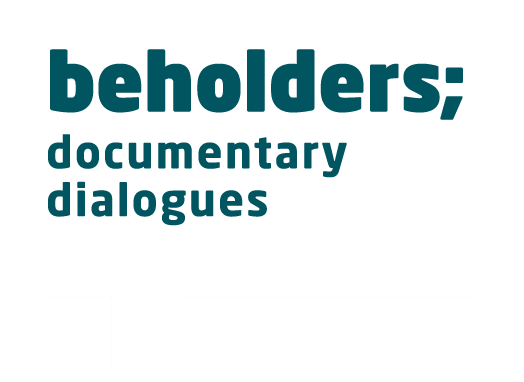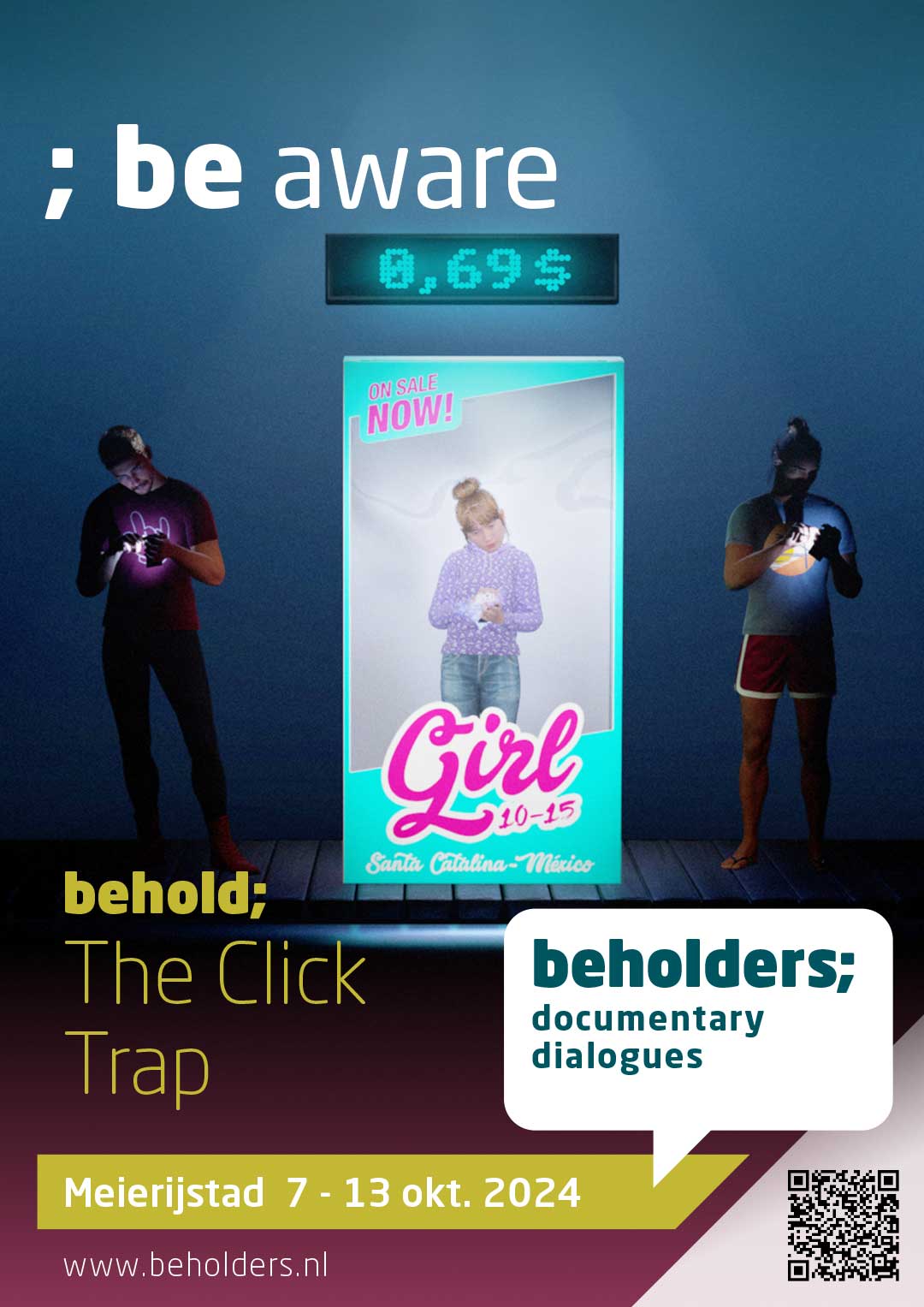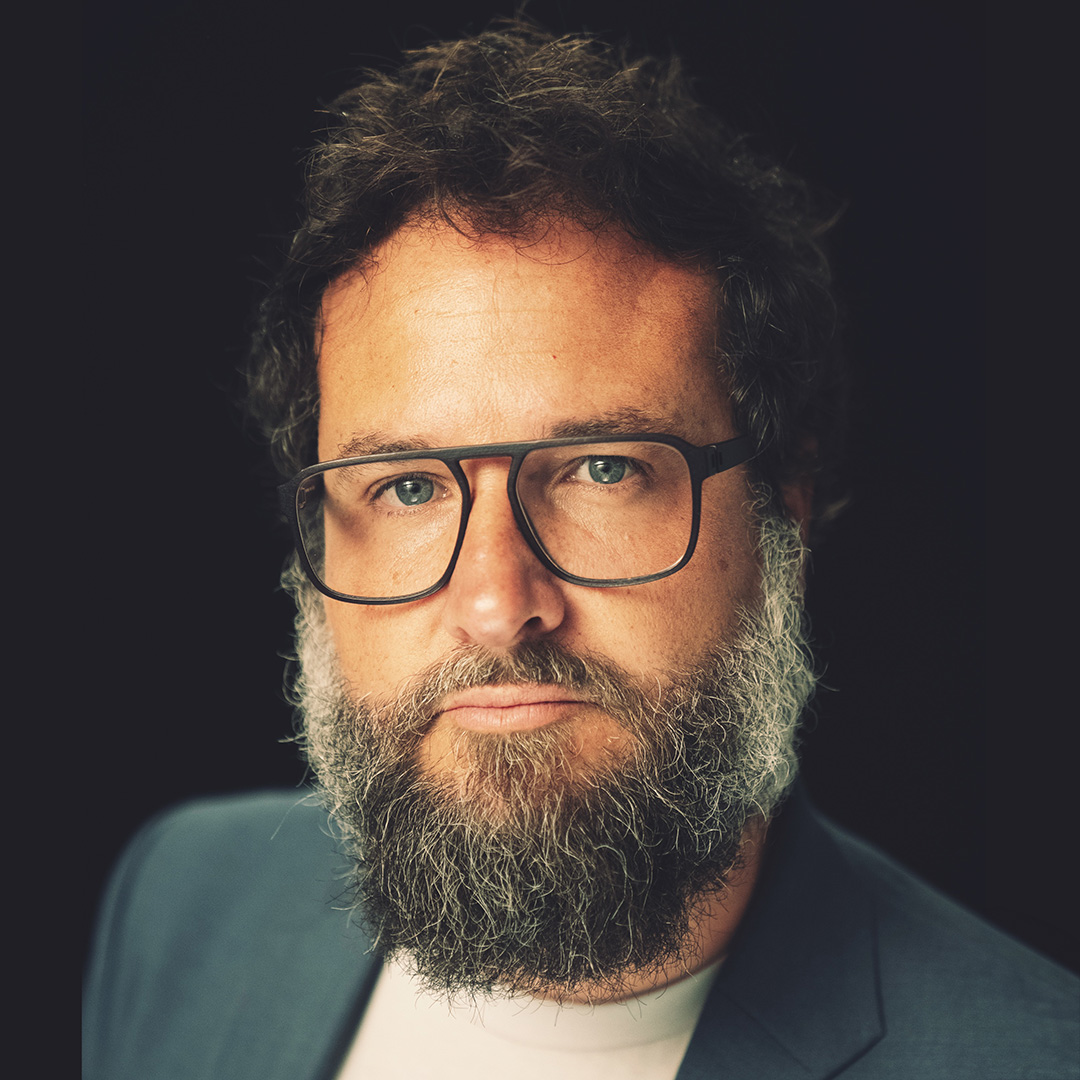director's statement;
Peter Porta
The Click Trap
I’m a self-confessed tech geek. I use online tools to manage nearly all aspects of my personal and professional life: search engines, social media platforms, online calendars, online meeting spaces. I’m aware that the “price” I pay for using these services is the collection of my personal data by some of the world’s most powerful tech corporations. I know this data is then sold to advertisers who target me and hundreds of millions of other people like me, as we surf the internet each day.
Like many people, I was curious about how online ads actually end up on my screen: who or what is placing them there? How exactly does this happen? And what could a better understanding of these processes tell me about the (problematic) ways technology and humans interact?
These questions led me down a rabbit hole and into the murky, complex world of programmatic advertising, an almost entirely automated trilliondollar industry which influences our lives, both on- and offline, in ways it’s hard to even imagine. Suddenly I found myself with more questions than answers. I realized that the ads themselves, which appear and disappear in the blink of an eye, were just the tip of the iceberg.
I began speaking to experts on the subject to find out more, all of whom repeated the same thing: people have no idea how online advertising works and the harm it’s doing – if they did, they’d be outraged. This idea became the guiding principle for The Click Trap. I now know that a complex system of machines, algorithms and software places an ad in front of my eyes – yet I want to stress that this system is designed and implemented by humans and has real human consequences. I don’t believe that any other documentary has tackled this urgent issue in such an ambitious way.
My experience working in commercial film, often with big name brands, gives me a unique perspective from which to approach this story. I’ve realized through my research that many brands have no idea how their ads circulate, where they end up and what kinds of online content they’re helping to fund. One of the film’s most shocking revelations is that digital advertising has become a way for people to monetize hate and misinformation online – the creation of extremist, right wing websites is no longer motivated solely by ideology but also by the huge profits it can generate through ad placements. This phenomenon is thriving within the programmatic advertising system and has serious implications for the stability of political regimes worldwide.
Although we should be worried, it isn’t all bleak. I’ve been truly inspired by the stories of digital activists fighting back against big tech monopolies and the European legislators pushing for greater regulation. THE CLICK TRAP is released in 2024, the same year the Digital Services Act legislation will come into effect. The timing couldn’t be better. I want this film to be part of the critical conversations already happening in parliaments, amongst friends and in workplaces across the globe. And I believe it will. I’m confident our audience will feel strongly invested in this story. Ultimately, this documentary is not about technology, it’s about human beings. It deals with issues that directly and indirectly affect us all, as consumers, workers, business owners, voters, social media users and technology lovers, or haters. We’re all implicated, in the problem and in the solution.
Faustine Cros
A Life Like Any Other


